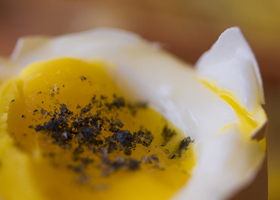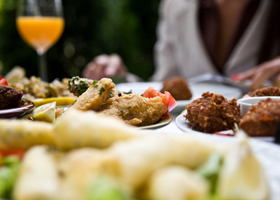It’s time for Coles and Woolworths to can the cage
Author | Animals Australia
On the first of January this year a ban on the barren battery cage took effect across the whole European Union in what has been heralded as the greatest animal welfare advancement in our history.
250 million [1] hens have been freed from this cruel and indefensible method of egg production where they are denied the most basic natural behaviours such as perching and nesting.
The EU’s decision to ban barren battery cages was based on a review of 30 years of scientific work by the European Scientific Veterinary Committee which concluded that battery cages are unacceptably cruel [2]. Battery cages are also illegal in Switzerland, where they were banned in 1992, and in at least 7 states in the U.S.
Despite these global developments, there is still no legislative movement on this issue in Australia, where 12 million hens remain cruelly confined in battery cages.
What now for hens in the EU
There are a number of alternative systems now in place in the EU, including Aviary system, barns, free range and what are known as ‘enriched’ or ‘furnished’ cages.
Internationally, welfare groups agree that enriched cages are not an acceptable method of egg production. However, they do provide some benefits over the battery cage in that they must include a nest, litter to enable pecking and scratching and perches.
The EU ban on the battery cage was an enormous first step and sets a meaningful precedent however, animal protection groups internationally will continue to push for a ban on all cage systems for laying hens.
It’s time for Australia to act
The power to end the cruelty of battery cages is in our hands. How? Consumer power!
The EU has already banned the battery cage. But we don’t need to wait for our ‘leaders’ to act. You can help lead the way right now! Lend your voice to the 12 million hens still living in battery cages in Australia.
Please click here to tell Coles and Woolies in your own words why you want them to stop selling cage eggs. Together we can make the battery cage history!
Animals Australia is one of the largest and the most dynamic national animal protection organisation, representing some 40 member societies and thousands of individual supporters. Their goal is to significantly and permanently improve the welfare of all animals in Australia. For more information, check out their website.
Compassion in World Farming, has been working long and hard on this issue and you can visit their website for more information about this positive development for hens in Europe: www.thebigmove.org.
1. Compassion in World Farming, ciwf.org.uk/the_big_move/
2. Scientific Veterinary Committee, Animal Welfare Section. Report of the Welfare of laying Hens, 1996.






